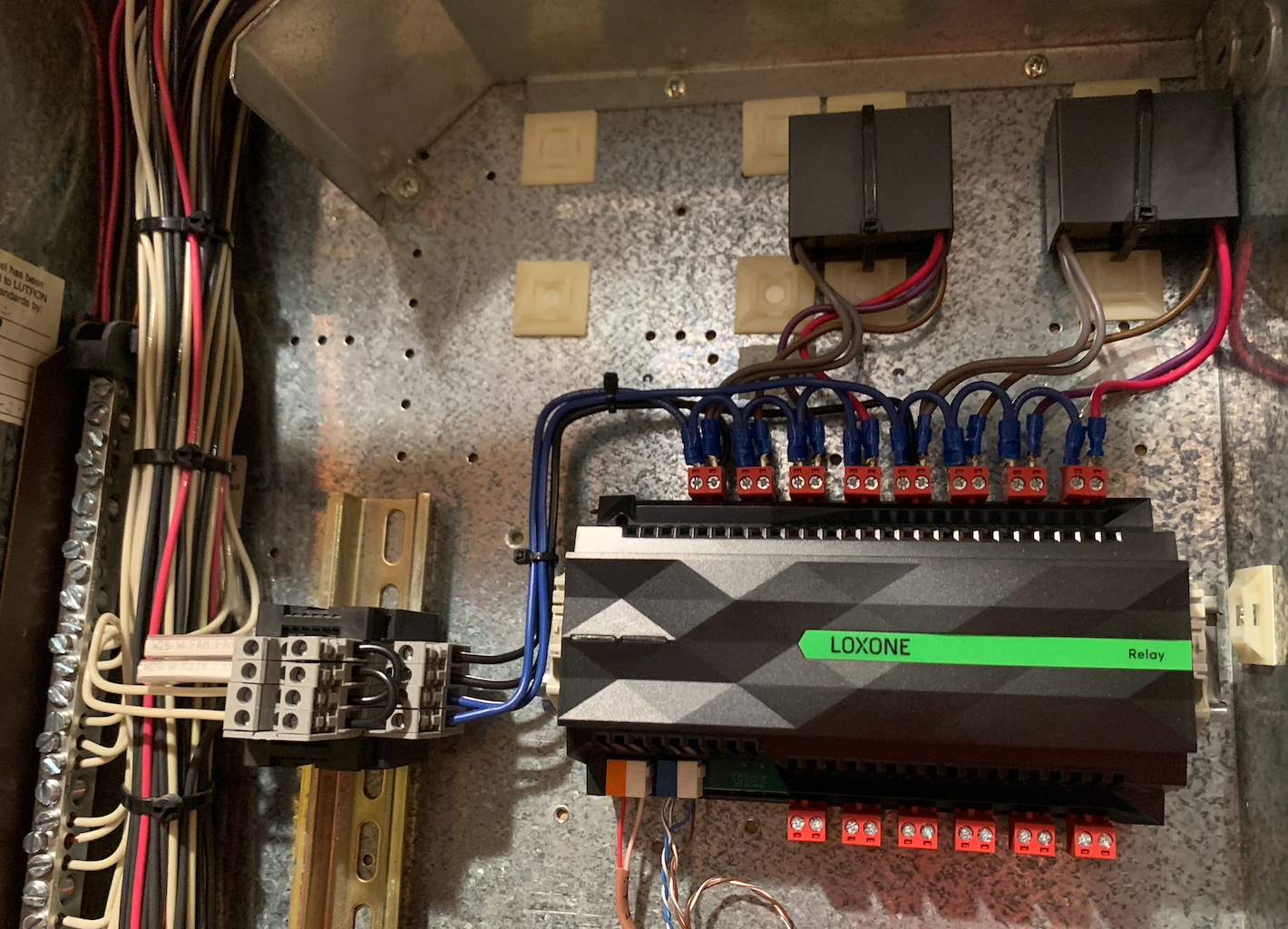Fan Speed Control - US - single phase / 120v
62 views
Skip to first unread message
Karl Peterson
Jun 25, 2022, 8:23:20 PM6/25/22
to Loxone English
A few people here will remember some years back when I posted about controlling US-standard 120v ceiling fans with a single phase VFD.


Over the years I was burning through some caps in the fans, and I could never fully get away from the signature VFD whine.
So a few months ago I took apart a lutron wall plate ceiling fan controller, and realized how simple they really are.
The following only applies to residential, AC, ceiling fans. I am using fans with no integral speed controls, designed to be used with a lutron style wall control. There are many of these on the market, but they are slowly disappearing in favor of DC fans. Those are another monster and not covered here.
Essentially high speed is just straight through, and speeds med/low are just some capacitors.
So I went ahead and replaced my VFD's with a relay extension, and wired up a fan control capacitor with three legs.
I wired this all up to 4 relays per fan (full speed direct out, 70/50/30% speeds via caps).
I then used a sequential controller with about 250 lines of code across 6 separate sequences within the controller block. This code takes a 0-100 input from a dimmer block, and controls the 4 relays in turn. It's handling ensuring no two relays are on at the same time, and ensuring if you are a low fractional speed going to a higher fractional speed to cycle through full speed first. You get the idea.
It took a an hour or so to wire up, and three hours or so to debug the programming and test it out.
Worked out really well. I've attached a few pictures to vaguely show what I've done.
I'm using a cap value of 6uf for "high", 5uf for "med" and 4uf for "low". The output of all three caps are commoned to the live conductor going to the ceiling fan.
You _must_ ensure your logic only allows one relay open at a time.
Hope this inspires someone else out there. -k

Reply all
Reply to author
Forward
0 new messages
